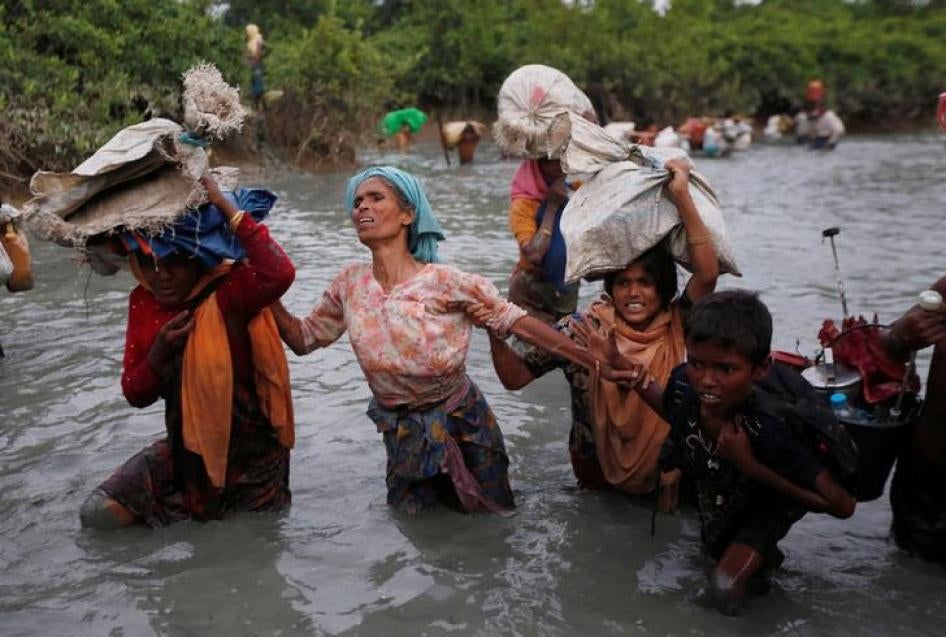On Thursday, Myanmar’s government announced it was launching an “independent commission of inquiry” to “investigate the violation of human rights and related issues following the terrorist attacks” by the Arakan Rohingya Salvation Army (ARSA). The ethnic Rohingya armed group, which first surfaced in October 2016, had attacked more than two-dozen police outposts and a military camp in northern Rakhine State in August 2017.
Unsurprisingly, the government made no mention of its response to the attacks: Myanmar military forces carried out a campaign of ethnic cleansing of the Rohingya Muslim population, killing, raping, and looting while torching hundreds of villages. Some 700,000 Rohingya fled to neighboring Bangladesh.
The government also neglected to mention that an independent investigation already exists. Last year, the United Nations Human Rights Council created a fact-finding mission into alleged abuses by Myanmar’s security forces and other armed groups. But instead of assisting the fact-finding mission, the government barred it from entering the country along with the UN-appointed human rights expert on Myanmar, Yanghee Lee.
The government will doubtlessly try to sell the new inquiry on the basis that one of the three commissioners will be an “international personality,” and that international legal and technical experts will provide support.
But we’ve been down this road before with the Aung San Suu Kyi-led government in the driver’s seat. In 2017 a Myanmar national commission rejected UN findings of “very likely” crimes against humanity against the Rohingya in 2016. A Myanmar army investigation into the 2016 events found only two minor abuses, one a motorbike theft. A second investigation – led by the same army general - said “there were no deaths of innocent people” during the late 2017 military operation.
In fact, it was only after two Reuters journalists uncovered the massacre of 10 Rohingya men that the military held any soldiers responsible for killings. Seven soldiers were sentenced to jail; the two Reuters journalists remain detained, purportedly for revealing state secrets.
Myanmar’s newly proposed independent commission of inquiry is not merely inadequate, but an attempt to delay and deflect real justice. The UN Security Council should urgently refer the situation in Myanmar to the International Criminal Court.
Victims of atrocities have little hope for justice without it.










